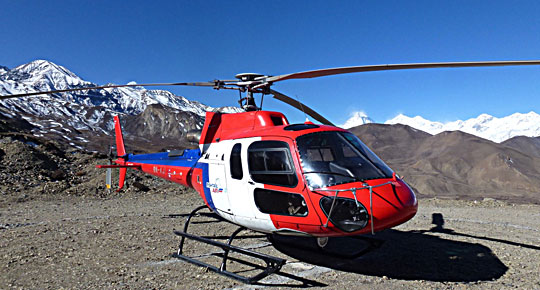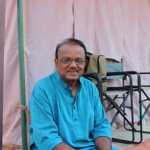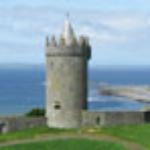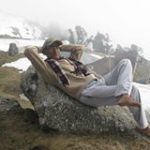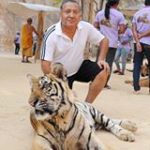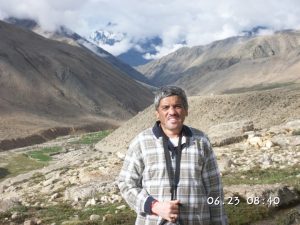Kailash Mansarovar Yatra
Join Kailash Mansarovar Yatra 2025 & 2026 package from Nepal
Kailash Mansaravor Yatra via Nepal route is organised by Kailash Journey. We arrange permits, transport, accommodation, and guided travel for each group. We support pilgrims in reaching Mount Kailash and experiencing the journey safely and with structure.
The Kailash Mansarovar Yatra is the ultimate pilgrimage tour for spiritual seekers. Mount Kailash is the sacred abode of Lord Shiva. Lake Manasarovar is a holy lake believed to purify sins. Pilgrims from around the world seek darshan of this sacred site each year. Buddhists, Jains, Hindus, and Bon followers all revere Kailash as a symbol of divinity.
Kailash Mansaravor Yatra 2025 - Overland Fixed Price & Dates
Unbeatable Price* - Save up to $500
*Offer Ends 30 Jun 2025
May 2025
June 2025
July 2025
August 2025
September 2025
Kailash Mansaravor Yatra 2026 - Overland Fixed Price & Dates
Super Early Bird Offer • Limited Time Only* - Save up to USD $900
*Offer Ends 30 June 2025
May 2026
June 2026
July 2026
August 2026
September 2026
Kailash Mansaravor Yatra with Charan Sparsh – Route from Kathmandu, Nepal
- The Kailash Yatra begins in Kathmandu, Nepal.
- Pilgrims drive along the scenic route from Kerung to Saga and Lake Manasarovar, surrounded by the raw beauty of the Tibetan region.
- The journey includes a challenging high-altitude trek around Mount Kailash.
- Trekkers complete a 39 km parikrama, known as the outer circuit, in 3 days.
- The Dolma-la Pass is the highest and most demanding part of the route.
- Those unable to walk can rent horses or return mid-way with support.
Kailash Mansarovar Yatra – Key Highlights
UNESCO Sites in Kathmandu
Begin your journey with a full-day tour of Kathmandu Valley, visiting sacred landmarks including Pashupatinath Temple, Gujeswari Temple, Jal Narayan, and Boudhanath Stupa.
Tibetan Monastery Visit
Explore one of Tibet’s most iconic and spiritually significant monasteries.
Scenic Drive to Mt. Kailash Base
Travel comfortably along a well-paved road all the way to Darchen, the gateway to Mt. Kailash.
Mt. Kailash Parikrama (3 Days, 39km)
Embark on the revered circumambulation trek around Mt. Kailash. Horse hire is available if needed.
Crossing Dolma La Pass (5,630m)
Conquer the highest point of the trek—Dolma La Pass—offering breathtaking views and a deeply spiritual atmosphere.
Lake Manasarovar Exploration
Visit the sacred Lake Manasarovar and take in the peaceful surroundings believed to hold deep spiritual energy.

Kailash Mansarovar Yatra 2025/2026 Overland Registration
Kailash Mansarovar Yatra - 16 Days Overland Itinerary
Kathmandu – Kyirong – Kailash Mansarovar
This overland route for the journey to Kailash Mansarovar Yatra which takes around 16 days.
Kailash Mansarovar Yatra by overland – you will travel by road throughout the journey. The whole group must arrive Kathmandu by their selected arrival date and we will have briefing and Q&A session during evening of arrival date. Next day we will have half day Kathmandu sightseeing and depart for Kailash Tour.
Day 01 (Kathmandu Arrival Date)
Kathmandu Arrival (1400m) – Overnight in Kathmandu
- Your Arrival Time – Airport pickup and transfer to your Hotel.
- Meal: Dinner Only at Hotel | Hotel: 3 Star Hotel – Hotel Tibet / Hotel Arts or similar
Day 02
Kathmandu Sightseeing
- 08:00 AM – After Breakfast – Full day sightseeing of Pashupatinath Temple, ShaktiPeeth and Budhanilkantha.
- Meal: Breakfast, Lunch and Dinner | Hotel: 3 Star Hotel – Hotel Tibet / Hotel Arts or similar or similar
Optional: Everest Mountain Flight, Add-on Muktinath Tour (4N / 5D)
Day 03
Chandragiri Temple Visit
- 08:00 AM – After Breakfast – Drive to Chandragiri.(22 kms – 1 hrs). Visit Chandragiri Bhaleshwor Mahadev Temple and Drive back to Hotel.
Note : Chandragiri Cable car fair is not included in our package cost. - Meal: Breakfast, Lunch and Dinner | Hotel: 3 Star Hotel – Hotel Tibet / Hotel Arts or similar or similar
Day 04
Bhaktapur Sightseeing
- 08:00 AM – After Breakfast – Drive to Bhaktapur (15 kms- 30min). Visit Bhaktapur Durbar Square, Doleshwor Mahadev and Changu Narayan Temple. Drive back to Hotel.
- Meal: Breakfast, Lunch and Dinner | Hotel: 3 Star Hotel – Hotel Tibet / Hotel Arts or similar or similar
Day 05
Kathmandu Sightseeing
- 08:00 AM – After Breakfast – Sightseeing of Swayambhunath Stupa and Kathmandu Durbar Square.
- 04:00PM – A short briefing about Kailash Manasarovar Yatra before dinner. Packing and preparation for the trip
- Meal: Breakfast, Lunch and Dinner | Hotel: 3 Star Hotel – Hotel Tibet / Hotel Arts or similar or similar
Day 06
Drive from Kathmandu to Dhunche or Syabrubesi or Timure.
- Drive to Dhunche (2000m / 127 km / 6 hrs) or Syabrubesi (1600m / 141 km / 7 hrs) or Timure (1983m / 152 km / 8 hrs).
- Meal: Breakfast, Lunch and Dinner | Hotel: Sonam Guest House or similar
Day 07
Drive to Kyirong (2850m)
- Drive to Rasuwagadhi (1800m / 15 km / 45 min from Syabrubesi) or 10 to 15 minute walk to border from timure,then complete immigration & custom formalities in Nepal & Tibet side at Rasuwagadhi, and then continue further drive to Kyirong.(2850m) – 1 hrs / 40 km.
- Meal: Breakfast, Lunch and Dinner | Hotel: 3 Star Hotel – Phuntsok Khansang Hotel or similar
Day 08
Drive to Saga (4550m)
- 09:00 AM – After Breakfast – Drive to Saga (220 km – 5 to 6 hrs). As we travel from Kyirong to Saga, we shall pass through the rural countryside of Tibet. The drive takes you across the holy Brahmaputra River as well.
- Meal: Breakfast, Packed Lunch and Dinner at Saga | Hotel: Xibuyizhan Hotel or similar.
Day 09
Drive from Saga to Mansarovar Lake (4550m)
- 08:00 AM – Drive towards Mansarovar Lake (450 km – 6 – 7 hrs) crossing beautiful places and stay at the shore of the Lake. Fill spiritual water. Parikrama of Mansarovar Lake by vehicle (3 hrs – 90 km)
- Meal: Breakfast, Packed Lunch, Dinner | Hotel: Lake Guesthouse
Day 10
Drive to Darchen (4650m)
- Most of the day – Perform Puja (prayer ritual) at Mansarovar Lake
- 04:00 PM – Drive to Darchen (35 km – 1hrs)
- Meal: Breakfast, Lunch, and Dinner | Hotel: Hotel with attached bathroom
Day 11
First Day of Outer Kora – Trek to Dirapuk (4860m)
- 10:00 AM – After a short drive, we will reach Tarboche and visit Yama Dwar. This is the starting point for Kora. We will trek to Dirapuk (4860 m) which is a 12 km trek (5-6 hrs). You will visit the North face of Mt. Kailash. Travelers who do not want to trek around (Parikrama) Kailash can go back to Darchen and wait for the rest of the group to arrive from Parikrama.
Note: If you are physically fit and if the Tibetan Government allows it then we will trek further to do Charan Sparsh (Touch Kailash) on this same day and return back to Dirapuk.
- Meal: Breakfast at Darchen, Packed Lunch, Dinner | Hotel: Guesthouse
Day 12
Second Day of Outer Kora – On to Zuthulphuk (4670m) with Trek via Dolma La Pass
- 07:00 AM – Trek from Dirapuk to Dolma La Pass and proceed to Zuthulphuk (22 km trek for 8-9 hours trek). The first stage of the trip is a two-hour ascent to Dolma La Pass (5700 m | 18700 ft). The trail brings us past Yamasthal on our way to Shiva-sthal, with each step bringing us closer to the Dolma-La Pass. There are some tea shops before you reach Dolma La Pass where you can have tea and hot refreshments. After Dolma La Pass, the route descends for an hour before straightening out for 2-3 hours till we reach Zuthulphuk. You’ll be able to see Gauri Kunda (The Pond of Goddess Parvati) as well while descending from Dolma la pass.
- Meal: Breakfast, Packed Lunch, Dinner | Hotel: Guesthouse
NOTE: If you are not doing Parikrama, then you will still be waiting at Darchen
Day 13
Drive to Saga (4550m – 470 kms – 7-8 hrs)
- 08:00 AM – After a short Trek (8kms – 2 – 3hrs) and reach the point where the coach will be waiting, we will drive to Darchen and merge with other members who were waiting and drive to Saga. (470 kms – 7-8 hrs)
- Meal: Breakfast, Lunch, Dinner | Hotel: Xibuyizhan Hotel or similar
Day 14
Drive back to Kyirong (2850m – 220 km – 5 to 6 hrs).
- Back journey, drive to Kerung County
- Meal: Breakfast, Lunch and Dinner
- Hotel: 3 Star Hotel – Phuntsok Khansang Hotel or similar
Day 15
Drive to Kathmandu (1400m)
- Drive from Kyirung to the border (40 kms – 1hrs) and completing immigration formalities drive back to Kathmandu – around 7-8 hr / 152 km. At Kathmandu hotel – Certificate of completion will be provided to you from Kailash Journeys.
- Meal: Breakfast, Lunch and Dinner
- Hotel: 3 Star Hotel – Hotel Tibet / Hotel Arts or similar or similar
Day 16
Transfer to Kathmandu Airport
- You will be free till your flight time. We will drop you at the Airport 2 hours before flight time (30 mins drive).
- Meal: Breakfast Only
Cost Includes
Cost Excludes
Important Note: For 03 July 2025 batch and 01 Aug 2025 batch you have to come to Kathmandu one day early as minimum 04 working days is required for Chinese visa processing and Saturday and Sunday are not considered as working days. (Saturday and Sunday come in between during the batch during visa processing time). We cannot alter the departure date from Kathmandu to the border as these are full moon batches and we have to reach Lake Mansarovar on full moon day.
Our Exclusive Kailash Mansarovar Yatra Packages
At Kailash Journeys, leading Nepal Tours Opeartor since 1995, we offer the best Kailash Mansarovar Yatra packages. Our routes include the overland drive via the Nepal–China border, helicopter access via Simikot, and Tibet tour via Lhasa. Each package includes accommodation, permits, local Tibetan guides, and well-managed support services. Travellers can choose from various routes and durations, including Lhasa, Everest Base Camp, and Saga stops. Packages are available from May to September, including full moon departure options.
A Pilgrimage of a Lifetime
Spiritual Enlightenment
Mythical Significance
Stunning Himalayan Views
Life-Changing Experience
The Spiritual Power of Mount Kailash: A Pilgrim’s Paradise
Mount Kailash is considered a holy mountain in four major religions.
- Hindus believe Lord Shiva resides here in deep meditation.
- Jains recognise it as the site where their first Tirthankara achieved moksha.
- Buddhists call it Mount Meru, the cosmic centre of the universe.
- Bon followers consider it the Nine-Story Swastika Mountain.
- A single trek around Mount Kailash is believed to erase the sins of a lifetime.
- Pilgrims visit this holy site to collect blessings, and many take a dip in the sacred lake of Manasarovar.
Sacred Sites of Kailash Mansarovar Yatra
Going on the Kailash Mansarovar Yatra lets travelers visit important holy sites that have deep spiritual meaning. Explore the main sacred places that make this journey special, filled with rich culture and natural beauty.
Kailash Tour Packages - Other Details
- Booking & Payments
- Download eBook Guide
- Visa / Passport
- Insurance / Medical Certicate
- Meal
- Cancellation Policy
Book Now
Advance payment of E-Payment USD $200 per person is required for booking confirmation.
To finalize your reservation, please complete a $200 deposit using the link below. We’re excited to have you with us!
Required – Original passport and Photograph is collected on the Kathmandu arrival day morning.
Download Booking FormProceed to paymentNepal SBI Bank
(Transfer from State Bank of India by using Indo- Nepal Remit form) – NO GST CHARGE
Bank: Nepal SBI Bank Limited
Bank Address: Commercial Branch, Lainchaur-29, Kathmandu, Nepal
Account Name: Kailash Journeys Pvt. Ltd.
Account Address: Lazimpat-2, Uttardhoka, Kathmandu, Nepal.
Account No. 22525240200227
Swift code: NSBINPKA
India Bank Account
Bank: HDFC Bank
Account Name: Kailash Journeys
Account No. :50200035661965
IFSC Code: HDFC0000129
Swift code: HDFCINBB
Address: PLOT NO. 28,BLOCK B,COMMUNITY CENTRE ,JANAKPURI, NEW DELHI – 110058
Please note: Additional 5% GST Extra applies
E-Payment Link
Proceed to paymentNotes:
- Convert INR to NPR (1 INR = 1.6 NPR): If you want to make payment of INR 1000 then you have to enter NPR 1600.
- Convert USD to NPR: Please visit this link to find the exchange rate and multiply with total amount you are paying in NPR
- Still Problem? Contact us and we will send you prefilled amount payment link.
Submit you email address to receive our detailed Kailash Mansarovar eBook Guide
Visa / Passport
| Visa Type/ Requirements | Indian Passport Holders | Non-Indian Passport Holders |
|---|---|---|
| Nepali Visa Immigration Nepal | Not Required Embassy of Nepal, New Delhi | Required - Visa is given upon arrival at Kathmandu Airport. |
| Chinese Visa / Tibet Permit | Required -Send Passport to Delhi Agent 7 working days before tour start date | Required - Original Passport is required 3 working days before tour start date |
Insurance / Medical Certicate
Personal travel insurance is not included in the trip price. It is a condition of booking a trip with Kailash Journeys (P) Ltd., and your own responsibility to ensure that you are adequately insured for the full duration of the trip.
We offer pure Indian vegetarian food. All meal plans are included.
| Day | Breakfast | Lunch | High Tea | Dinner |
|---|---|---|---|---|
| 4 | NA | At Kerung Lemon rice, Rajma gravy, Vegetable fry, Plain Paratha, Frooty, Pickle, Mix- Fruits, Mineral water, Salad, Aaloo Kabab | At Kerung Tea, Coffee, Milk, Biscuit, Dalmote | At Kerung Soup, Pop corn, Papad, Dal Makhani, Plain rice, Masala Roti, Vegetable fry, Pickle, Salad, hot water |
| 5 | At Kerung Tea, coffee, Milk, Hot Chocolate, Horlicks, Butter Toast, Jam, Honey, Muesli | On the way to Saga Pulau, Chana Masala, Vegetable fry, Butter roti, Pickle, Frooty, Rasgulla, Mineral water | At Saga Tea, Coffee, Milk, Biscuit, Dalmote, Nimki | At Saga Soup, Pop corn, Plain Rice, Dal Fry, Roti, Vegetable, Pickle, Salad, Sweets, Water. |
| 6 | At Saga Tea, coffee, Milk, Horlicks, Chocolate, Puri Bhaji, Cornflakes | On the way Veg Biryani, Aaloo, Dom, Veg fry Spaghetti, Fresh Sauce, Salad, Frooty, Gulab Jamun, Mineral water | At Mansarovar Tea, Coffee, Milk, Biscuit, Dalmote, Mixed Masala Pakauda | At Mansarovar Soup, Pop corn, Papad, Dal Makhani, Plain rice, Masala Roti, Vegetable fry, Pickle, Salad, Hot water |
| 7 | At Mansarovar Tea, Coffee, Milk, Horlicks, Hot Chocolate, Sweet rice/ Haluwa | At Darchen Palak Paneer, Butter Rice, Plain Paratha, Pickle, Aaloo Sadeko, Salad, Sun Papadi, Fruits and Water | At Darchen Tea, Coffee, Milk, Biscuit, Bhujiya, Dalmote and Hot water | At Darchen Soup, Pop Corn, Papad, Roti, Plain Rice, Dal, Vegetable gravy, Pickle, Samber and Hot Water |
| 8 | At Darchen Tea, Coffee, Milk, Horlicks, Hot Chocolate, Aaloo Paratha, Pickle | Kailash Parikrama Packed Lunch Samosa, Bread Jam, Biscuits, Frooty, Apple, Chocolate, Water | At Dirapuk Tea, Coffee, Milk, Biscuit, Dalmote, Sun Papadi | At Dirapuk Soup, Pop Corn, Papad, Khichadi, Roti, Pickle, Sauce, Hot water |
| 9 | At Dirapuk Tea, Coffee, Milk, Horlicks, Corn Flakes, Upma | Kailash Parikrama Packed Lunch Sandwich, Biscuit, Apple, Frooty, Puri, Chocolate | At Zuthulpuk Tea, Coffee, Milk, Biscuit, Dalmote | At Zuthulpuk Plain Rice, Roti, Dal, Vegetable fry, Matar Paneer, Soup, Papad, Pickle, Gulab Jamoon, Hot water |
| 10 | At Zuthulpuk Tea, Coffee, Milk, Horlicks, Muesli, Puri Bhaji, Hot water | On the way Fry Rice, Dal Samber, Mushroom Curry, Papad fry, Roti, Pickle, Juice, Rasgulla, Salad, Hot water | At Saga Tea , coffee, Milk, Pakauda, Biscuit, Dalmote | At Saga Soup, Papad, Plain Rice, Roti, Dal Fry, Vegetable Gravy, Pickle, Salad, Sweets, Idili, Sauce, Hot water |
| 11 | At Saga Tea, Coffee, Milk, Horlicks, Hot Chocolate, Corn flakes, Paratha, Chana Gravy | On the way Veg Fry Macaroni, Fresh Sauce, Makhmali roti, Aaloo chips, Salad, Frooty, Rasgulla, Hot water | At Kerung Tea, Coffee, Milk, Biscuit, Dalmote, Nimki | At Kerung Soup, Papad, Plain rice, Masala roti, Pickle, Fry vegetable, Salad, Aaloo Sadeko, Dal Makhani, Green eyes beans gravy, Rasgulla, Hot water |
| 12 | At Kerung Tea, Coffee, Milk, Horlicks, Chocolate, Muesli with Milk, Puri Bhaji. | NA | NA | NA |
Cancellation Policy
The cancellation will take effect subject to the following:
- 90-150 days prior to departure date: full payment refund except non-refundable deposit:
- 45-90 days prior to departure date: 75% of your payment refund except the non-refundable deposit.
- If cancellation takes place less than 45 days prior to departure due to client’s personal problems, all previously paid amount(s) will be forfeited.
Frequenty Asked Questions
Accommodation
What kind of Hotels in Nepal & Tibet side?
Nepal Side:
- Kathmandu : 3 Star Hotel – Hotel Tibet, Hotel Arts or Similar
- Timure Border: Sonam Guesthouse or Similar
All Hotels are based on twin sharing.
If you want Single Room then you have to pay:
- USD $240 extra in Kathmandu (6 nights)
- NPR 3000 extra in Timure border (1 nights)
Tibet Side:
- Kyirong: Phuntsok Khansang Hotel or similar (with Attached bathroom)
- Saga: Xibuyizhan Hotel or similar. (with attached bathroom)
- Mansarovar: Lakeside Guesthouse (Tibetan common bathroom)
- Darchen: Hotel Himalaya or Similar (with attached bathroom)
- Dirapuk: Guesthouse (Tibetan common bathroom)
- Zuthulphuk: Guesthouse (Tibetan common bathroom)
Note: At Kyirong, Saga & Darchen rooms will be on Twin / triple sharing basis. At Mansarovar, Dirapuk and Zuthulphuk rooms will be on sharing basis.
Transportation
Vehicles: What kind of Transportation in Nepal & Tibet side?
- During sightseeing in Kathmandu we will provide transportation by A/C vehicle.
- For the Overland tour from Kathmandu to the Border it will be a Non – A/C bus.
- Tibet Side: A / C Coach
Note: The road from Kathmandu to the border is a bit bumpy. There is an option to travel by Jeep instead of Non-AC Bus from Kathmandu to the border by paying extra.
Chinese Visa / Tibet Permit
- The Chinese visa is a group Visa paper based.
- First of all we need your color passport copies by email to apply for a Tibet Travel Permit (required by the Chinese government).
- We will apply for a Tibet permit with your color passport copy.
- After that we need your original passport & one Photograph for Group Visa processing:
- Foreign Nationals: We will need your original passport 04 working days before Fixed Kailash dates in our Kathmandu office.
- Photograph should be with white background and size of 48x33mm. (Please avoid Tika, earrings, nose rings, garlands, spectacles/goggles while taking photograph)
- After getting a group Chinese Visa, you can collect your passport back from us during the day of traveling from Kathmandu to the Nepal – Tibet Border.
- Therefore, since it takes time, we suggest our Yatris to book as early as possible, so that your yatra can begin on your desired departure date.
- If you already have a Chinese Visa: Normal Stamped Chinese visa on passport does not work for traveling to Kailash Mansarovar. Group paper visa is required and in order to obtain group paper visa your normal Chinese visa has to be canceled. After returning back from the Kailash Mansarovar tour you can reapply for a Normal Stamped Chinese visa as per your requirement.
Payment
Pay Securely by Card
E-Payment Advance Booking (USD 100)
Bank Wire Transfer
Nepal SBI Bank (Transfer from State Bank of India by using Indo- Nepal Remit form) – NO GST CHARGE
Bank: Nepal SBI Bank Limited
Bank Address: Commercial Branch, Lainchaur-29, Kathmandu, Nepal
Account Name: Kailash Journeys Pvt. Ltd.
Account Address: Lazimpat-2, Uttardhoka, Kathmandu, Nepal.
Account No. 22525240200227
Swift code: NSBINPKA
India Bank Account – 5% GST Extra
Bank: HDFC Bank
Account Name: Kailash Journeys
Account No. :50200035661965
IFSC Code: HDFC0000129
Swift code: HDFCINBB
Address: PLOT NO. 28,BLOCK B,COMMUNITY CENTRE
JANAKPURI, NEW DELHI – 110058
Credit Card
Parikrama
What is the difference between Inner Parikrama & Outer Parikrama?
- Inner Parikrama means parikrama of Nandi Parvat and the outer parikrama means parikrama of Kailash Parvat. The regular Overland tour is actually outer Parikrama which is easy to complete. Inner Parikrama is currently not open due to restrictions from the Chinese Government.
How much do I have to walk during Parikrama?
- Kailash Parvat Parikrama is 42 Kms by trekking. (First day 12 kms, second day 22 kms and third day 08 kms)
Note:
- If you went for a first day parikrama and don’t want to proceed further then there is an option of returning back from Dirapuk to Darchen on a rescue van. It will cost around 500 Yuan to 800 yuan per person for this.
- During second day parikrama – After descending from Dolma la pass and reaching Phedi there is the option of completing the remaining distance of parikrama on rescue Van and returning to Darchen which will cost you around 500 yuan to 800 yuan per person on sharing basis.
What if I don’t want to do Parikrama?
- If you do not want to go for Parikrama at all, then you can stay at Darchen until others return back from Parikrama. Our staff will be there to prepare food and accommodation during your stay.
If I want to do Parikrama riding on horse (pony) how much does it cost?
- If you can’t walk or don’t want to go to Kailash Parikrama by foot then you can hire a horse and horse man for 3 days of parikrama by paying extra (around 3800 Chinese Yuan per person). This rate may vary during travel time, hence not a fixed rate. The cost includes charges for Horse, Horseman and Porter and directly payable at Tibet side.
- Even if you do hire a horse, you have to walk at least 2-3 hours
Is it possible to return without Parikrama and without waiting for other group members ?
- You can return back early without waiting for others however many additional costs are involved on this such as Visa splitting charge, Separate Transportation, additional night stay at Kathmandu other than the designated one night included on our package.
Money and other things to carry
Personal Expenses in Tibet
- USD and Indian Rupees are not accepted in Tibet. You will have to take Chinese Yuan which can be exchanged in Nepal upon your arrival or you can bring it from your home country.
What kind of items to carry while traveling?
- You have to take warm clothes like a sweater, trousers, thermo-coat, monkey cap, trekking shoes, high-neck, gloves etc.
- Please Download Guidelines for detail list
What do you provide us for the tour?
- We will provide a Waterproof Windcheater Jacket, a Duffel Bag, a Backpack, a Cap and a Passport Holder to every member as a souvenir gift from our company. You do not have to return these items after returning from Kailash.
Can we use USD on the Tibet side?
- No, the currency that is used on the Tibet side is Chinese Yuan.
What sort of clothing and accessories is suggested for the Trip?
- As the Kailash Mansarovar is at high altitude the climate is cold so it is recommended that you have warm clothes with you, thermo coat, monkey cap, comfort shoes, masks, walking sticks, sunscreen lotions, sun glasses are also recommended accessories for the trip.
Group Size
How many people in each group?
- Our group size is a minimum of 20 people on the Overland tour. The group can reach 35 – 50 members in each group but can be more during Full moon trips.
Can we have our own Departure Date and Group?
- Yes, you can pick your own departure date if your group consists of at least 16 persons in a group.
Age Limit
- There is not any age limit for Non – Indian passport holders. However if you are above 70 or below 10 years old then we recommend consulting with the doctor regarding high altitude traveling.
Mobile phone at Tibet
Mobile Phone: How to keep in touch with our friends & family during the trip?
- You can take an international roaming facility from your sim service provider or there will be shops at the phone center at Kyirong where you can buy Chinese Sim cards with your passport to get in touch with your family members.
Full Moon
There are several reasons why yatris choose Full-Moon:
- Festivals in Tibet happens during Full Moon (especially Saga Dawa Full Moon Festival: the holiest day in Tibetan Buddhism)
- Full-Moon in Mansarovar: Many Yatris prefer doing puja during the Full Moon (Purnima)
- Many want to see beautiful view of full moon over Mount Kailash
- Prefer doing Kora during Full-moon
Note : If you want to Choose full moon batch for your trip then kindly note that during full moon there might be some rush at Border and Tibet side.
Tibet Travel Bureau (TTB) & FEC
We are an authorized agent of Foreign Exchange Center of TAR (FEC)
- FEC (Foreign Exchange Center of TAR) has a monopoly over the rights to handle travel arrangements & fix rates for the Indian pilgrims in Tibet.
- All arrangements within Tibet are solely at the discretion of the China Tibet Tourism Bureau (TTB) for Non – Indian nationals & for Indian nationals, Foreign Exchange Center of TAR (FEC), both are government organizations, and we have no control over the quality of vehicles or facilities.
- TTB can deny permits or even stop giving permits from time to time. We have seen this in the past.
Food and Clothing
What type of Food will be provided there in Tibet?
- The food provided will be hygienic and pure vegetarian prepared by our cooks. Also we will provide 2 liters of mineral water per person per day.
Fitness & Health
What kind of fitness is required?
- You have to be physically fit for the Kailash Mansarovar Yatra. It is recommended to get a medical checkup before you plan to go for this religious journey. But it is not mandatory that you have to submit the medical checkup certificate. People with back pain may have problems during the trip on the jagged road. People with asthma or allergies to dust are strongly recommended to wear masks on the dusty road. Besides these people are recommended to practice walking and do exercise and yoga for physical fitness.
Cancellation Policy
The cancellation policy will take effect subject to the following:
- 90-150 days prior to departure date: full payment refund except non-refundable deposit.
- 45-90 days prior to departure date: 75% of your payment refund except the non-refundable deposit.
- If cancellation takes place less than 45 days prior to departure due to client’s personal problems, all previously paid amount(s) will be forfeited.
Insurance & Medical Certificate
Personal travel insurance is not included in the trip price. It is a condition of booking a trip with Kailash Journeys (P) Ltd., and your own responsibility to ensure that you are adequately insured for the full duration of the trip.
Spiritual Experience, Sacred Sites, and Key Experiences of the Kailash Mansarovar Journey
A Spiritual Journey to the Holy Mount Kailash
Going to Kailash Mansarovar is more than just a trip — it’s a special journey for the soul. Mount Kailash is known as the home of Lord Shiva and is a holy place for people of many faiths. This journey is about more than seeing a mountain — it’s a way to feel peace and find deeper meaning in life.
Discover the Sacred Lake Mansarovar
Next to Mount Kailash is Lake Mansarovar, a lake that many people believe can cleanse the soul. Pilgrims often take a dip in the water or sit quietly by the lake to feel calm. With snowy mountains and peaceful skies around, its a perfect place to reflect.
Travel Through China to Reach Kailash
How to Prepare for Kailash Mansarovar Yatra? Mount Kailash and Lake Mansarovar are in Tibet, which is part of China. To go there, travellers need special permits. Our team takes care of all the paperwork to make your journey safe and easy.
Why Lord Shiva's Followers Visit Kailash
For followers of Lord Shiva, this is one of the most important pilgrimages. Its believed that Lord Shiva lives on Mount Kailash in deep meditation. Visiting this place helps people feel closer to their faith and to something greater.
Make Your Journey Meaningful
The Kailash Mansarovar Yatra is more than just a tour. It mixes adventure, faith, and culture in a unique way. Each step brings you closer to peace, purpose, and spiritual growth.
Experience the Power of the Full Moon at Mansarovar
Traveling during the full moon adds a special energy to the Kailash Yatra. The moonlight over Lake Mansarovar creates a peaceful setting for prayer and reflection.
These dates are popular for their strong spiritual significance.

Kailash and Mansarovar
Mount Kailash and Lake Mansarovar are revered as sacred landmarks in the spiritual landscape of several religions. Mount Kailash stands tall, embodying the spiritual axis of the world, while Lake....
Read More
Kailash Mansarovar Yatra From Nepal
The Kailash Mansarovar Yatra from Nepal is a profound pilgrimage that captivates many with its spiritual allure. Nestled in the Himalayas, Mount Kailash holds deep significance for various faiths. Pilgrims....
Read More
Mount Kailash: Travel Tips for First-Time Yatris
Mount Kailash stands as a revered site for pilgrims, drawing thousands each year. First-time yatris face unique challenges on this sacred journey. Preparation is essential for a rewarding experience. From understanding the spiritual....
Read More
Experience the Power of the Full Moon at Lake Mansarovar
Lake Mansarovar transforms under the full moon’s glow, casting an enchanting silver light over its tranquil waters. The landscape shifts into a serene tapestry, inviting quiet contemplation. As....
Read MoreKailash Mansarovar Reviews: Stories from the Soul
Only one word to describe Kailash Journeys – AWESOME! SUPERBLY AWESOME!!!! We were a group of 16 people- some did the Kailash Yatra, rest did the Nepal tour and the Indian Chardham Yatra. We were mostly from Canada, USA and some from India. Since the Foreign Passport holders could not get the Tibetan permit for Kailash Yatra (no fault of Kailash Journeys), Mr. Rajan and his team of wonderful and ever smiling team consisting of Santosh, Sudeep, Bishow, Suman, Purushottam, Manoj, Mohan and others made alternate arrangements for the group to visit tourist attractions in Nepal and India. We visited Nagarkot, Lumbini, Chitwan, Pokhara and Kathmandu. In India, we went for the Chardham Yatra, organised by the Indian office of the Kailash Journeys. This group of 16 was so excited and thankful to the Kailash Journeys for many reasons. Some points worth mentioning are: Speed, accuracy and attention to details, excellent customer service, flexibility and humane consideration to the needs of the group, choice of hotel and food arrangements, ease of communication, transfers, ever smiling staff who are eager to solve the problems if any, the Commander (Mr.Rajan) who was there to welcome and take genuine care of us. The whole team takes great pleasure in recommending Kailash Journeys for trips in Tibet, Nepal and India to anyone. We would be more than happy to share our experience via e-mail or by phone. Subi Subramanian Leader of the group. 1-905-607-0070 (Canada) sps56@hotmail.com
July 10, 2014 · I recently completed the Kailash Kora (June 16 to June 26 -2014) with a group of about 50 Indian Passport holders. We were the lucky 50 amongst a whole lot of rejected visas during that period of uncertainity and autocratic behaviour of Tibetan authorities. Kailash Journeys fought their way and got us the permission. Indian passport holders in my group ranged upto 72 years in age in my group and almost everyone completed the Kora! Thanks to Kailash Journeys, everything was perfect! I recommend Kailash Journeys to everyone who is reading this. Mrs.Yegammai Subramanian 1-905-607-0070 (Canada)
We are writing to tell you again what a pleasure it was being with you and your team. The Sherpas who were with us from your team (Rajkumar, Lamba, Laxman, Bahadur, Bhagman, Sagar) were so accommodating and very helpful. They were awesome. They took good care of each one of us from the batch; provided us with best of services and food at all times. Thank you all for your help. The Tibetan guide and driver for the bus arrangements you made for us were good.
I had the privilege of Kailash Mansarovar journey by air route through www.Kailashjourneys.com from 8th-19th June , It was a very professionally managed trip by the operator . I salute the Nepali Sherpas and people in general for their kindness and very helpful nature in taking. Great customer service …..Keep it up !! When I come next time , it will be Kailash Journeys Pvt Ltd only.
Dear Rajan, We undertook 28 May 13 KM Yatra organised by your company. We really enjoyed every moment of our yatra and were delighted to have wonderful darshan of Mansarovar & Kailash. your ever smiling team of Sherpas took a lot of care & attention of everyone. mr Lama Babu, the head Sherpa was indeed excellent. It was indeed a very memorable trip, which will linger in our memories for long. Our best wishes for all the future tours. With warm regard to you & your team. Pankaj Misra- Lucknow
Dear Mr. Rajan, We went to Kailash yatra with your company on May 28…All the Sherpas you sent us with yatra were very good and friendly and tried to do all their best in difficult conditions at high altitude. Food prepared was good. We had wonderful experience of having Jain Pooja with Gurudev Shri Manak Muniji. We will recommend your company to others when they want to go to Kailash/Mansarovar Yatra.
Phone: +1-2403506639


![Kailash Mansarovar Yatra Via Helicopter – Ex Lucknow [For Indian Citizens]](https://kailashjourneys.com/wp-content/uploads/helicopter_kailash.jpg 700w, https://kailashjourneys.com/wp-content/uploads/helicopter_kailash-600x266.jpg 600w)
![Kailash Mansarovar Yatra 2025 by Overland [For Nepalese Citizens]](https://kailashjourneys.com/wp-content/uploads/kailash-mountain-min-1600x690.jpg 1600w, https://kailashjourneys.com/wp-content/uploads/kailash-mountain-min-800x345.jpg 800w, https://kailashjourneys.com/wp-content/uploads/kailash-mountain-min-768x331.jpg 768w, https://kailashjourneys.com/wp-content/uploads/kailash-mountain-min-1536x663.jpg 1536w, https://kailashjourneys.com/wp-content/uploads/kailash-mountain-min-1200x518.jpg 1200w, https://kailashjourneys.com/wp-content/uploads/kailash-mountain-min-600x259.jpg 600w, https://kailashjourneys.com/wp-content/uploads/kailash-mountain-min.jpg 2000w)

